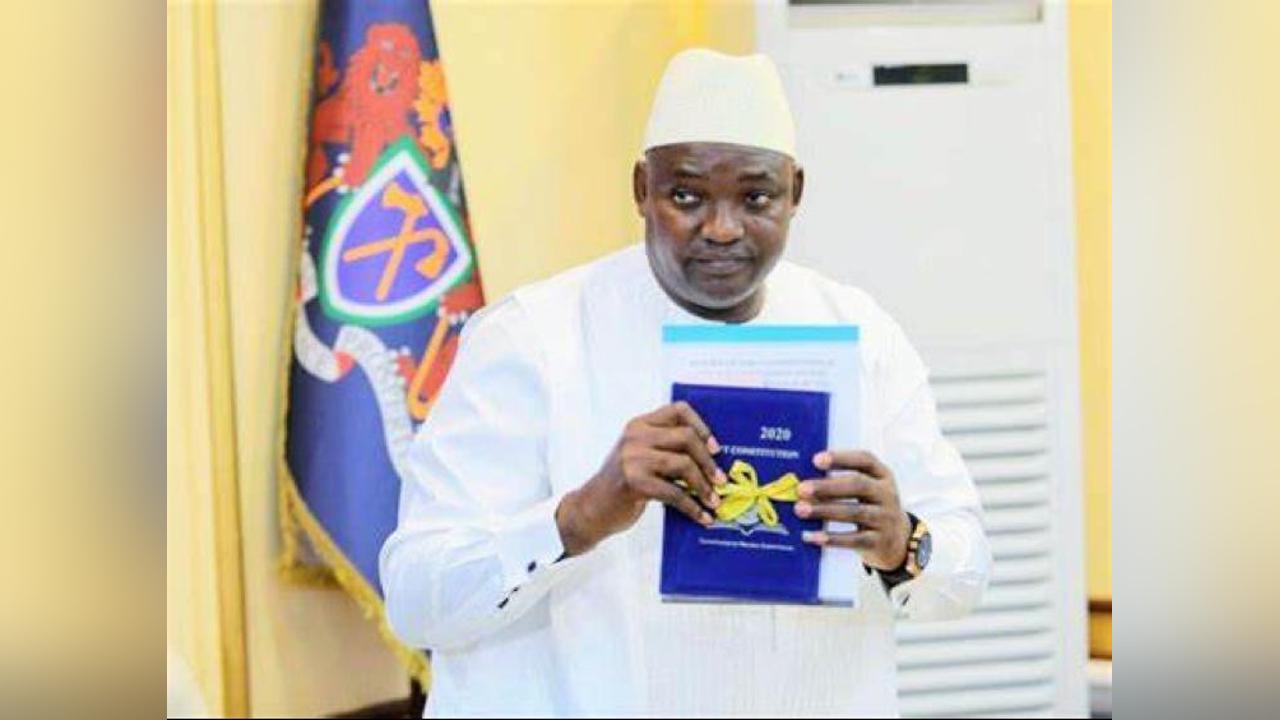Africa-Press – Gambia. As The Gambia approaches the second reading of the 2024 Draft Constitution at the National Assembly early next month, the nation faces a critical decision: to adopt a new constitution that reflects democratic principles, including presidential term limits, or to continue under the 1997 Constitution, which lacks adequate safeguards against prolonged rule. The outcome of this decision will shape the country’s democratic future and determine whether The Gambia progresses toward good governance or remains stuck in a system that allows for potential abuse of power.
Why The Gambia needs a new constitution with term limits
1. Preventing dictatorship and power consolidation
One of the biggest weaknesses of the 1997 Constitution is the absence of enforceable term limits, which has historically allowed for the consolidation of power in the presidency. Under this framework, a leader can manipulate the system to remain in office indefinitely, undermining democracy and accountability. A new constitution with strict term limits ensures that no individual can hold onto power indefinitely, preventing the return of dictatorship.
2. Promoting democratic governance
A democracy thrives when leadership changes periodically through free and fair elections. Term limits guarantee that no single individual dominates the political landscape, allowing fresh ideas, new leadership, and a dynamic political environment. By adopting a constitution with term limits, The Gambia would strengthen its democratic institutions and reinforce the principle that leadership is about service, not personal rule.
3. Ensuring political stability and preventing crisis
History has shown that countries without term limits often experience political instability, contested elections, and in some cases, violent conflicts. Leaders who overstay their time in office tend to resist change, manipulate state institutions, and suppress opposition. The Gambia must learn from the past and ensure that its legal framework prevents such scenarios by setting a clear limit on presidential tenure.
4. Respecting the will of the people
The Gambian people have expressed their desire for democratic reforms, and term limits are a key part of those reforms. In 2020, the Draft Constitution, which included a two-term limit for the presidency, was widely supported before it was rejected in the National Assembly. A second failure to pass a constitution with term limits would be a direct disregard for the people’s will and aspirations for a democratic future.
5. Encouraging leadership accountability
Leaders who know they have limited time in office are more likely to focus on governance and national development rather than personal political survival. Without term limits, a leader may prioritise staying in power over addressing national issues. A new constitution with term limits ensures that leaders remain accountable and work for the good of the people rather than entrenching themselves in power.
6. Aligning The Gambia with global democratic standards
Most democratic nations have term limits to prevent authoritarianism and ensure leadership rotation. The Gambia must not be an exception. By adopting a constitution with a clear two-term limit, the country would align itself with international democratic norms, gaining respect and credibility on the global stage.
The consequences of retaining the 1997 constitution
If the National Assembly fails to pass the 2024 Draft Constitution, The Gambia will continue under the 1997 Constitution, which:
Allows indefinite rule, if a leader amends or manipulates the system.
Weakens democratic institutions by giving excessive power to the president.
Fails to provide strong checks and balances, making accountability difficult.
Risks political instability, as the absence of term limits can lead to power struggles and conflicts.
By rejecting the new Draft Constitution, lawmakers would be choosing to maintain a system that Gambians struggled to change. It would be a betrayal of the democratic progress made since 2016 and a lost opportunity to safeguard the country’s future.
The urgency of political will and national interest
This moment requires courage and patriotism from The Gambia’s lawmakers. They must rise above political and personal interests to deliver a constitution that prioritises democracy, stability, and national development. Citizens must also actively engage in the process, urging their representatives to support the Draft Constitution for the country’s future.
The choice is clear: a new constitution with term limits that secures democracy or the continuation of an outdated system that enables unchecked power. The future of The Gambia depends on this decision. It is time for lawmakers to act in the best interest of the nation.
For More News And Analysis About Gambia Follow Africa-Press






